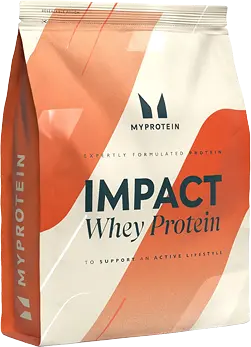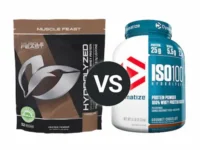Knowledge BaseYou're Questions Answered
What is whey protein powder?
Whey protein powder is a popular dietary supplement that is derived from milk during the cheese-making process. It is known for its high protein content and rich profile of essential amino acids, making it an effective supplement for muscle building, weight management, and overall health support. Whey protein is one of the most commonly used protein supplements due to its fast absorption rate and high nutritional value.
How Is Whey Protein Powder Made?
Whey is a byproduct of the cheese-making process. When milk is curdled and strained, it separates into solid curds (used to make cheese) and liquid whey. This liquid whey is then processed and dried to create whey protein powder. The powder goes through various levels of filtration and processing to produce different types of whey protein1:
- Whey Protein Concentrate (WPC): Contains 70-80% protein and retains more fats and carbohydrates compared to other forms.
- Whey Protein Isolate (WPI): Has a higher protein content (90% or more) and is processed to remove most fats and lactose2.
- Whey Protein Hydrolysate (WPH): Pre-digested for faster absorption and easier digestion, often used in medical protein supplements and infant formulas3.
Benefits of Whey Protein Powder
Whey protein powder provides numerous health benefits due to its high-quality protein content and complete amino acid profile:
- Supports Muscle Growth: Whey protein is rich in branched-chain amino acids (BCAAs), especially leucine, which plays a key role in muscle protein synthesis4.
- Aids Recovery: Whey protein helps repair and build muscle tissue after exercise, reducing muscle soreness and speeding up recovery time.
- Weight Management: Consuming whey protein can promote satiety and help control hunger, supporting weight loss or weight maintenance goals5.
Who Should Use Whey Protein Powder?
Whey protein powder is suitable for a variety of people, including:
- Athletes and Fitness Enthusiasts: To support muscle recovery, growth, and performance.
- Individuals Seeking Weight Loss: As a meal replacement or snack to manage calorie intake while maintaining muscle mass.
- People with Increased Protein Needs: Such as older adults or those recovering from illness or surgery.
Considerations When Choosing Whey Protein
- Lactose Intolerance: While whey protein isolate contains less lactose, individuals with severe lactose intolerance should choose lactose-free alternatives or plant-based protein powders.
- Added Ingredients: Check the label for added sugars, artificial flavors, or unnecessary fillers that may not align with your dietary preferences.
- Smithers, G. W. (2008). Whey and whey proteins—from ‘gutter-to-gold’. International Dairy Journal, 18(7), 695-704.
- Hoffman, J. R., & Falvo, M. J. (2004). Protein–which is best? Journal of Sports Science & Medicine, 3(3), 118-130.
- Phillips, S. M., & Van Loon, L. J. C. (2011). Dietary protein for athletes: From requirements to optimum adaptation. Journal of Sports Sciences, 29(sup1), S29-S38.
- Tipton, K. D., & Wolfe, R. R. (2001). Exercise, protein metabolism, and muscle growth. International Journal of Sport Nutrition and Exercise Metabolism, 11(1), 109-132.
- Arciero, P. J., Ormsbee, M. J., Gentile, C. L., Nindl, B. C., Brestoff, J. R., & Ruby, M. (2011). Increased protein intake and meal frequency reduces abdominal fat during energy balance and energy deficit. Obesity, 19(4), 818-824.
Related Questions

Your Answer
We are a participant in the Amazon Services LLC Associates Program, an affiliate advertising program designed to provide a means for us to earn fees by linking to Amazon.com and affiliated sites.






